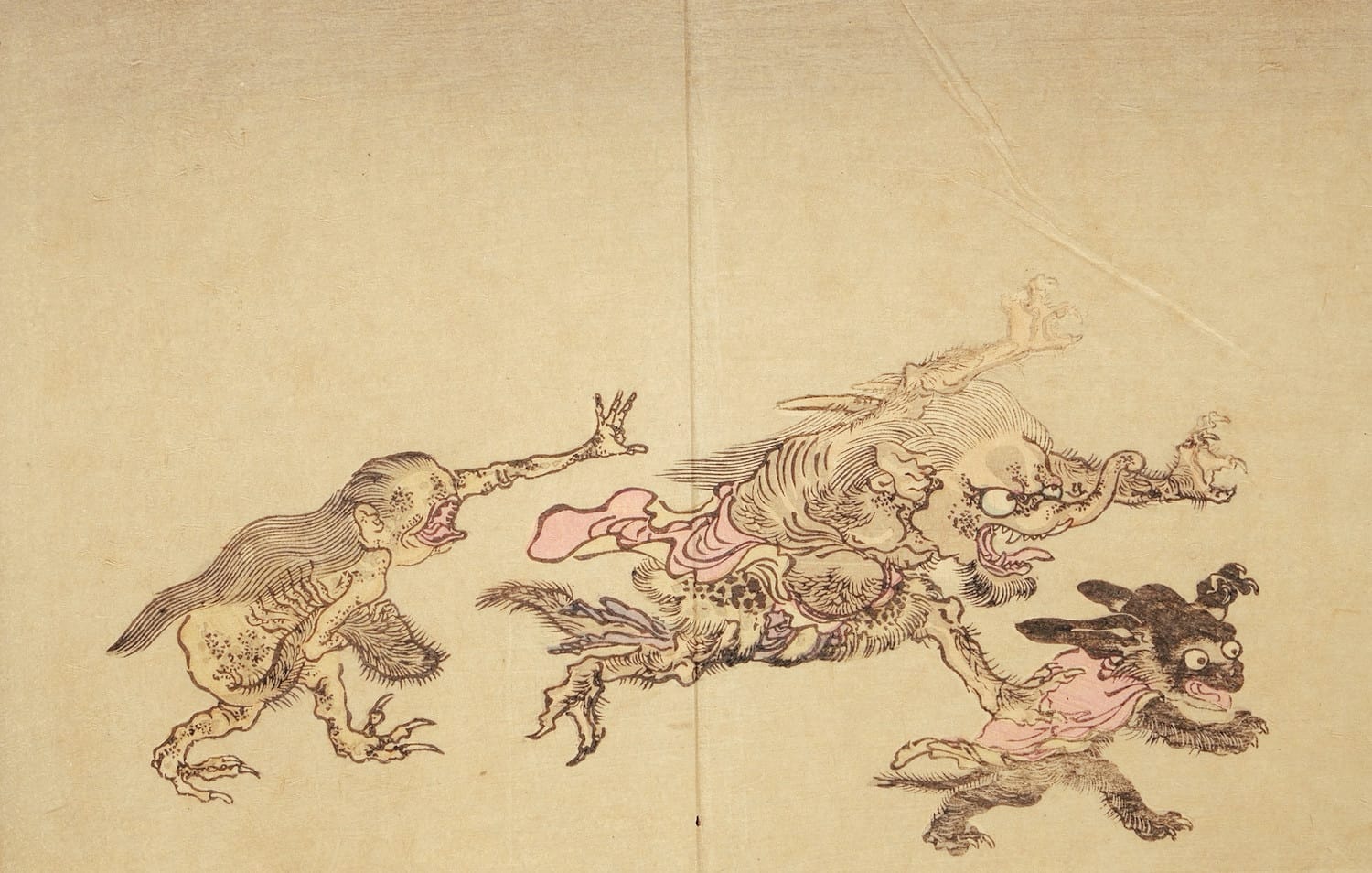Samsara is the Devil's punishment. Not Hell nor being infinitely distant from God; instead, eternal reincarnation is the Lord's whip upon Satan. Or we could just understand samsara as a kind of Hell and that it would be Hell to be born, live, and die in ever new forms for all of eternity.
"Carnated" is a neologism that can be defined as placing one in a human body. In the Rolling Stones' "Sympathy for the Devil," we can see a story of carnation in this neologistic sense. Lucifer "Was 'round when Jesus Christ had his moment of doubt and pain." ... "Killed the Tsar and his ministers." ... "Held a general's rank when the blitzkrieg raged," yet still we are to "Have some sympathy." Why are we to have sympathy for such a literally devilish creature?
"Reincarnation is sort of a punishment from God," states Professor Skye in his GNX album analysis. This reincarnation as punishment can be demonstrated by Tupac, wherein his "only fear of death is reincarnation." The form of reincarnation alluded to by the Rolling Stones and Tupac is the eternal return of the different. The eternal return of the different is a Nietzschean concept where one returns to life forever, embodying ever-new forms. Each successive life is a product of change; samsara takes this ever-changingness and adds a pessimistic connotation.
For the Buddhists, there is dukkha, or the notion that life is dissatisfaction. Kendrick Lamar states, "I'd be lyin' if I said I wouldn't give this shit away - The aloof Buddha." It is important here that Lamar is the aloof Buddha in that he is trying to face dissatisfaction with disinterest. The Buddhist thinker is disinterested in life and willing to give life away into nirvana or absolute cessation. One would want to give in to nirvana so they do not have to face endless dissatisfaction. Every life for the Buddhist comes with dukkha, and endless reincarnation will only trap us into unending dukkha. Now we can understand samsara as the eternal return of the different plus dukkha.

However, understanding dukkha as simple dissatisfaction alone would be reductionist. Dukkha includes all suffering and pain imaginable. Still, these dissatisfactions only exist due to our clinging. But what if it were the case that we could escape the possibility of pain and suffering, that our disinterest or letting go would not allow us to reach nirvana? This is how we can frame the Devil's samsara, that Satan is ever destined to be ever 'carnated.'
Lamar says of himself, "I am reincarnated." Through this straight-up statement alone, Lamar has equated himself to the Devil. Reincarnation may be a punishment solely reserved for the Devil, as a human cannot be carnated as they are already human. While humans may believe that they have or will reincarnate, this is a false belief under the Devil's samsara. The purest form of dukkha would be a dukkha faced alone. There could be some satisfaction in knowing that others are suffering like you, but if you are the only being facing the eternal return of the different, that would be a truly unique dukkha.
In facing samsara alone, one could not be the "Big face Buddha, get my peace from within." There would be no peace from within, as this peace would be shaken out through change, especially the flowering that comes with a new carnation. Could samsara be a custom whip upon Satan? Such a matter cannot be outright proven, but faiths and idols can be built around what were once neologisms. And we can form sympathies for those in any type of Hell.
Check out more like this:
 The TonearmAnthony David Vernon
The TonearmAnthony David Vernon
 The TonearmAnthony David Vernon
The TonearmAnthony David Vernon







Comments